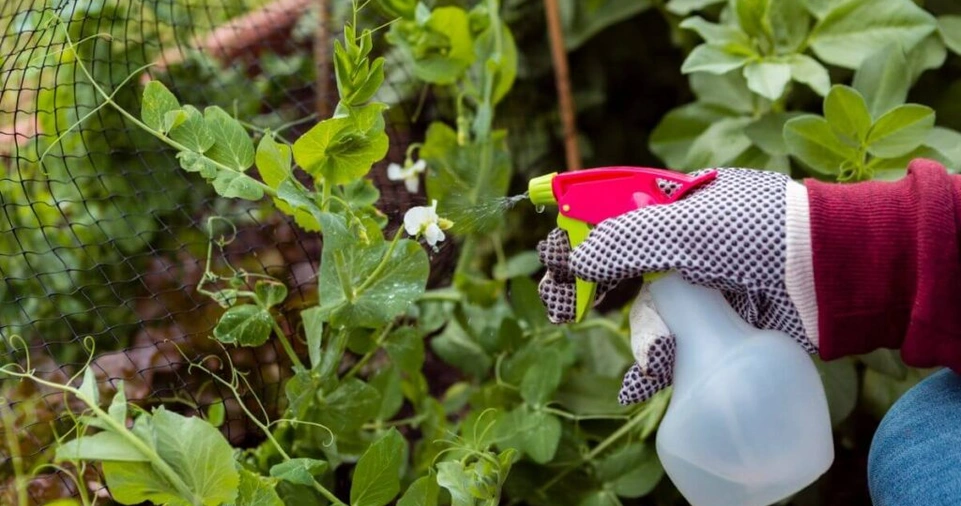Gardening is a rewarding activity, but it comes with its fair share of challenges—one of the biggest being garden pests.
Many gardeners turn to chemical pesticides to combat these issues, but natural pest control methods can be just as effective without harming beneficial insects, pets, or the environment.
This article explores various natural ways to keep pests away from your garden while maintaining a healthy ecosystem.
Companion Planting for Pest Control
Companion planting is a time-tested method where specific plants are grown together to repel pests.
Certain plants produce strong scents or chemicals that deter harmful insects, making it a natural way to protect your crops.
| Companion Plant | Pests Repelled | Best Companion Plants |
|---|---|---|
| Marigolds | Aphids, mosquitoes, nematodes | Tomatoes, carrots, beans |
| Basil | Mosquitoes, flies, aphids | Tomatoes, peppers, lettuce |
| Chives | Aphids, Japanese beetles | Roses, carrots, tomatoes |
| Mint | Ants, fleas, aphids | Cabbage, tomatoes, radishes |
| Garlic | Aphids, cabbage worms, spider mites | Cabbage, roses, tomatoes |
| Nasturtiums | Whiteflies, aphids | Squash, cucumbers, tomatoes |
| Dill | Tomato hornworms, aphids | Cucumbers, broccoli, cabbage |
ALSO READ: How to Use a 3D Printer for DIY Projects?
Encouraging Natural Predators

Nature provides a built-in pest control system through beneficial insects and animals. Attracting these helpful predators to your garden can help keep pest populations in check while promoting biodiversity.
Beneficial Insects and Their Prey:
| Beneficial Insect | Pests Controlled |
|---|---|
| Ladybugs | Aphids, scale insects, mites |
| Praying mantis | Caterpillars, beetles, grasshoppers |
| Lacewings | Aphids, whiteflies, mealybugs |
| Parasitic wasps | Caterpillars, beetles, whiteflies |
| Spiders | Various insects, including flies and moths |
| Ground beetles | Slugs, caterpillars, maggots |
| Hoverflies | Aphids, thrips |
To attract beneficial insects:
- Plant flowers like daisies, sunflowers, and fennel to provide nectar.
- Avoid using chemical pesticides that can harm them.
- Provide shelter, such as small rock piles or dense shrubbery.
- Install a small water source like a birdbath or shallow dish.
Homemade Natural Pesticides
DIY pesticides can be effective in controlling pests while being safe for plants and animals. These natural solutions are easy to make and apply.
Natural Pesticide Recipes:
- Garlic & Chili Spray – Blend 10 garlic cloves, 1 chili, and 2 cups of water. Strain and spray on affected plants.
- Neem Oil Spray – Mix 1 teaspoon of neem oil with 1 liter of water and a few drops of dish soap. Spray on plants to deter pests.
- Soap Spray – Mix 1 tablespoon of liquid soap with 1 liter of water and spray on soft-bodied insects like aphids.
- Vinegar Spray – Mix equal parts vinegar and water to repel ants and other crawling insects.
- Eucalyptus Oil Spray – Add a few drops of eucalyptus oil to water and spray to repel flies and beetles.
Using Physical Barriers
Physical barriers are an excellent way to prevent pests from reaching plants while minimizing the need for chemical treatments.
| Barrier Type | Protection Against |
|---|---|
| Row Covers | Cabbage worms, leaf miners, beetles |
| Mulch | Slugs, weeds, soil-borne pests |
| Netting | Birds, butterflies (caterpillars) |
| Copper Tape | Slugs, snails |
| Sticky Traps | Flying insects, aphids, whiteflies |
| Floating Row Covers | Protect young plants from insect infestations |
Proper Garden Maintenance

Keeping your garden clean and healthy is essential in preventing pest infestations. Implementing these simple habits will significantly reduce pest problems.
- Remove Debris: Pests often hide in dead leaves and plant material.
- Crop Rotation: Avoid planting the same crops in the same spot each year to prevent soil-borne pests.
- Watering Schedule: Water in the morning to keep foliage dry and reduce fungal issues.
- Pruning: Regularly trim dead leaves and overgrown branches to improve air circulation.
- Compost Wisely: Use a sealed compost bin to prevent attracting rodents and flies.
Beneficial Soil Practices
Healthy soil helps plants resist pests naturally. By maintaining good soil health, plants will be stronger and more resistant to infestations.
- Compost: Enrich soil with organic matter to improve plant health.
- Mulching: Retains moisture and suppresses weeds, reducing pest habitats.
- Diatomaceous Earth: A natural powder that dehydrates soft-bodied insects like slugs and mites.
- Crop Diversity: Planting a variety of crops prevents the spread of specific pests.
Essential Oils for Pest Control
Essential oils can deter pests without harming beneficial insects. They can be diluted and sprayed directly on plants or around the garden to act as a repellent.
| Essential Oil | Pests Repelled |
|---|---|
| Peppermint | Ants, spiders, aphids |
| Lavender | Mosquitoes, fleas, moths |
| Tea Tree | Whiteflies, fungi |
| Citrus | Roaches, flies |
| Rosemary | Cabbage worms, beetles |
| Clove | Mosquitoes, flies, ants |
Companion Animals for Pest Control
Animals can be natural allies in pest management, helping to reduce infestations organically.
- Chickens & Ducks: Eat slugs, snails, and beetles.
- Frogs & Toads: Consume large quantities of insects.
- Cats: Help keep rodent populations in check.
- Bats: A single bat can consume thousands of insects each night.
- Hedgehogs: Great at eating slugs and caterpillars.
Using Traps for Pest Reduction

Traps are a non-toxic method for managing garden pests.
- Beer Traps for Slugs: Bury a shallow dish filled with beer to attract and drown slugs.
- Sticky Traps: Use yellow sticky traps to catch flying insects like aphids and whiteflies.
- Cardboard Traps for Earwigs: Place a rolled-up damp newspaper in the garden overnight and shake out the earwigs in the morning.
ALSO READ: How to Grow a Lush Lawn Without Chemicals?
Conclusion
By using these natural pest control methods, you can create a healthy, thriving garden without relying on harmful chemicals.
Combining companion planting, beneficial insects, homemade sprays, physical barriers, and proper soil practices will help keep pests at bay while maintaining an eco-friendly environment.
With the right approach, your garden can flourish without the need for synthetic pesticides. Happy gardening!






